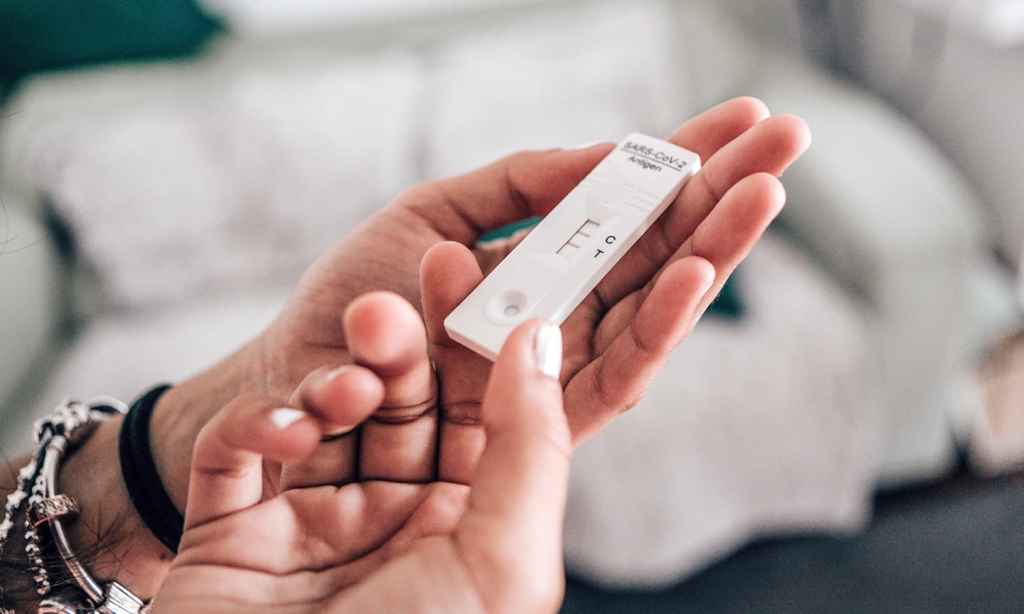While Australia’s case numbers appears to be in decline, as we’ve hopefully started sliding down the back of the Omicron wave that swept the country during the holiday period, COVID is still very much around.
If you haven’t got it yet, it’s likely you still will over the coming months. Its a shame, but this appears to be the outcome of the ridiculous ‘let it rip’ strategy our governments have appeared to embrace.
Having COVID is a drag, and, if you’re someone who falls into that brutally dismissive category of ‘immunocompromised,’ can be downright terrifying. Still, if the worst that happens is that you’re ill over a period when you had booked annual leave, not all is lost.
Many will have caught the virus during some time when they had plans to be doing literally anything else. If this is you, here’s what you can do about it.
COVID on Annual Leave
It’s not absolutely a given that getting COVID, or any illness, while on booked time off from work means you just have to suck it up, losing your hard-earned hours of freedom.
The Latch spoke with Pooja Kapur, an employment lawyer with the Sydney firm Owen Hodge Lawyers who said that this predicament is a fairly common one at the moment.
“With much of the country opening up just before the holiday period, alongside a fast-growing Omicron outbreak, many of us have been struck down with COVID-19 while on leave,” she said.
“Many Australians have found themselves unwell and forced to isolate during their leave period. It’s no wonder many are questioning whether they are able to shift their annual leave to sick leave. Most of us would prefer to preserve our annual leave for when we can actually enjoy it!”
However, when it comes to leave changes, Kapur said that Aussies have little to fear here, as the law is very much on their side. She explained that employers are required to offer their employees the option to convert annual leave to sick leave under the Fair Work Act.
“If you test positive for COVID-19 while on annual leave, you have the right to convert your annual leave to sick leave for the duration of your illness. This is true for any illness or injury which occurs while you’re on annual leave,” she said.
The only exception here is casual employees or contractors who generally aren’t entitled to annual or sick leave.
A Fair Work Ombudsman spokesperson confirmed this for us, explaining that “an employee who is on, or decides to take, annual leave during a quarantine or self-isolation period can instead take their accrued sick leave if they become ill or injured.”
“That means their sick leave balance will be deducted instead of their annual leave,” they said.
While the rules around this precede COVID-19, the current situation has “shone a light on them,” Kapur said. “I suspect many employers and employees hadn’t realised this entitlement existed, as they may never have experienced it until now”.
While a simple text or an email to your manager requesting the shift ought to be enough, some employers will request that you provide proof. Employers are legally allowed to request evidence of illness of injury that “a reasonable person” would accept before allowing the change of leave. Failure to do so could result in the request being denied, something Kapur said would be unfair but not illegal.
“Under ordinary circumstances, that may have involved the employee sourcing a medical certificate,” she said. “In the current environment, it’s impractical to expect COVID-19 positive people to visit their GP for a medical certificate, especially given the need to isolate.
“Instead employers may opt to request a text message confirming a positive PCR test or a photo of a positive rapid antigen test. Another option is requesting a statutory declaration from the employee which states they were COVID-19 positive during their leave period.”
Those who end up caring for someone with COVID can also request that their annual leave or sick leave be converted to carers’ leave. This is also protected under the Fair Work Act and the same evidentiary requirements would need to be made as with the change to sick leave.
The Fair Work Ombudsman spokesperson said that letting your employer know about your plans to change your leave application has to be made as soon as possible, something Kapur underlines.
“I would encourage employees to inform their employers of their illness in writing as soon as possible, rather than when they return to work, even if they have not yet obtained the necessary evidence. This will help employers have a record of how many sick days were required, and keep track of COVID-19 isolation periods.”
Anyone with questions about workplace rights, relating to leave or otherwise, should contact Fair Work or call them for free advice on 13 13 94. If the request turns into a problematic debate and you feel you might be being treated unfairly or illegally, getting in touch with a law firm like Owen Hodge Lawyers is always a good idea.
Read more stories from The Latch and subscribe to our email newsletter.







